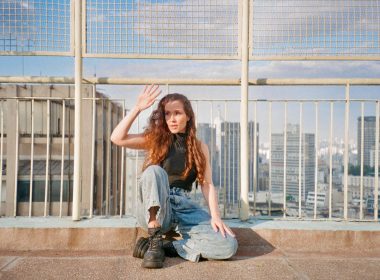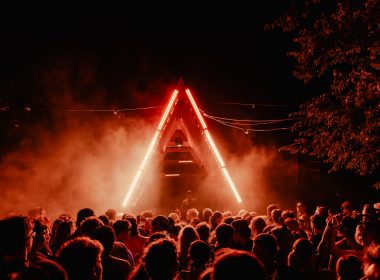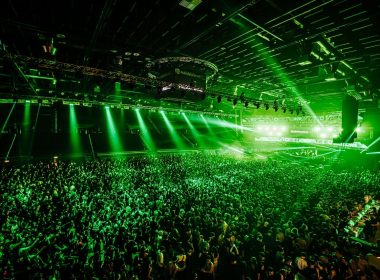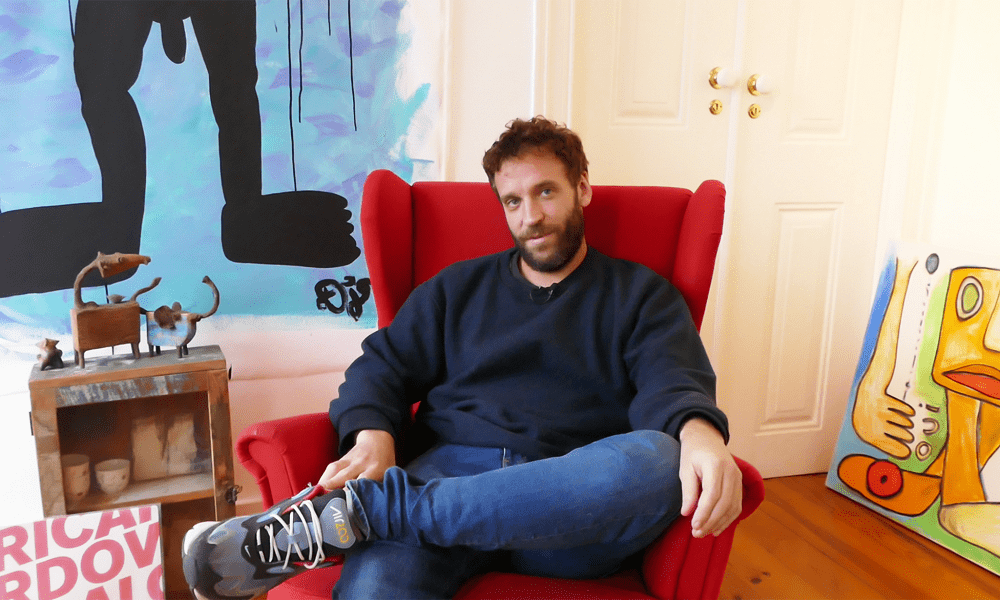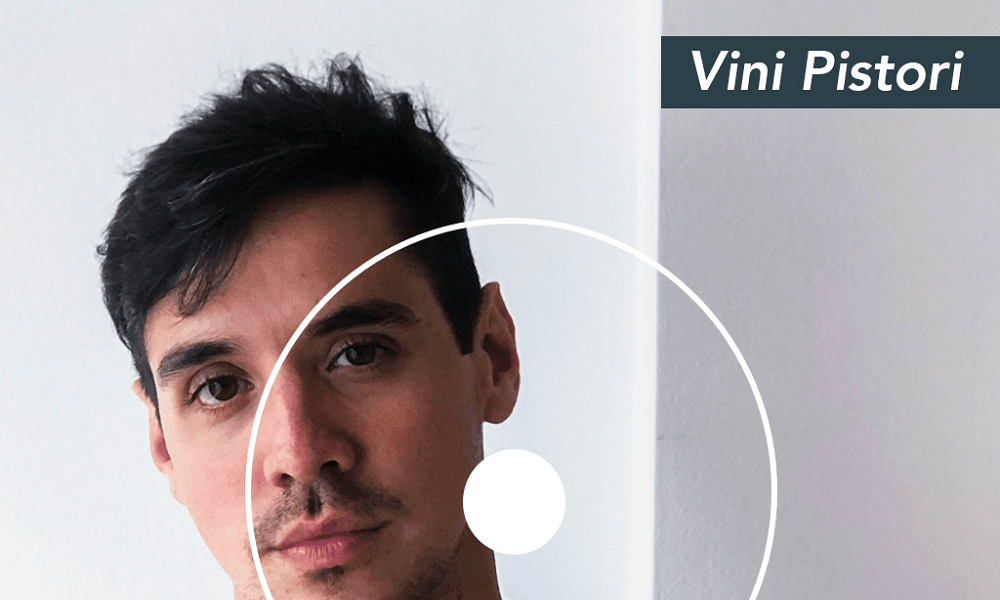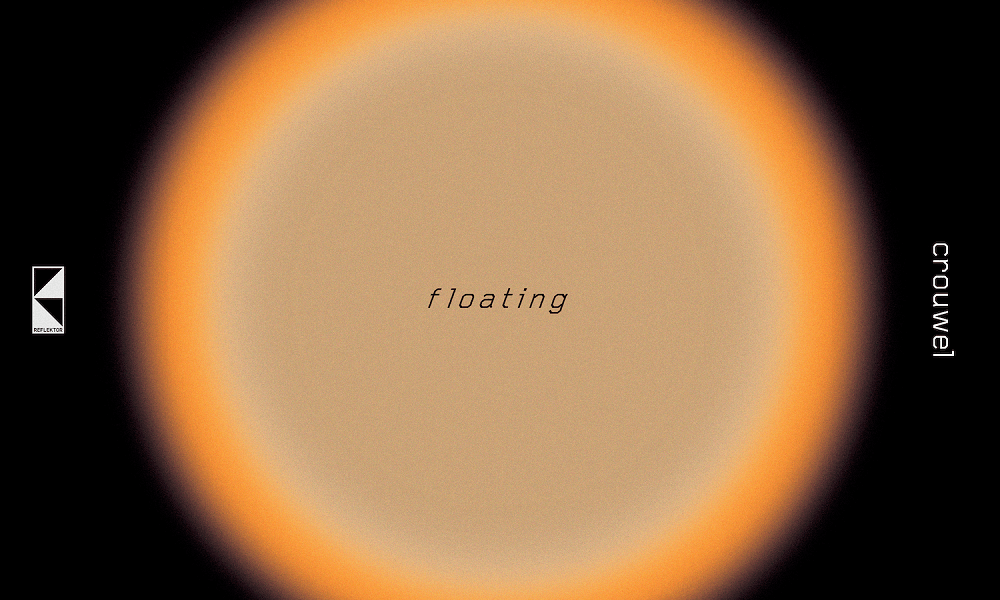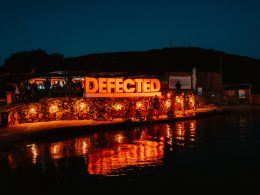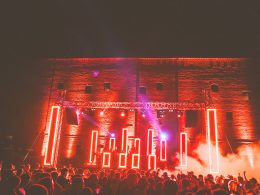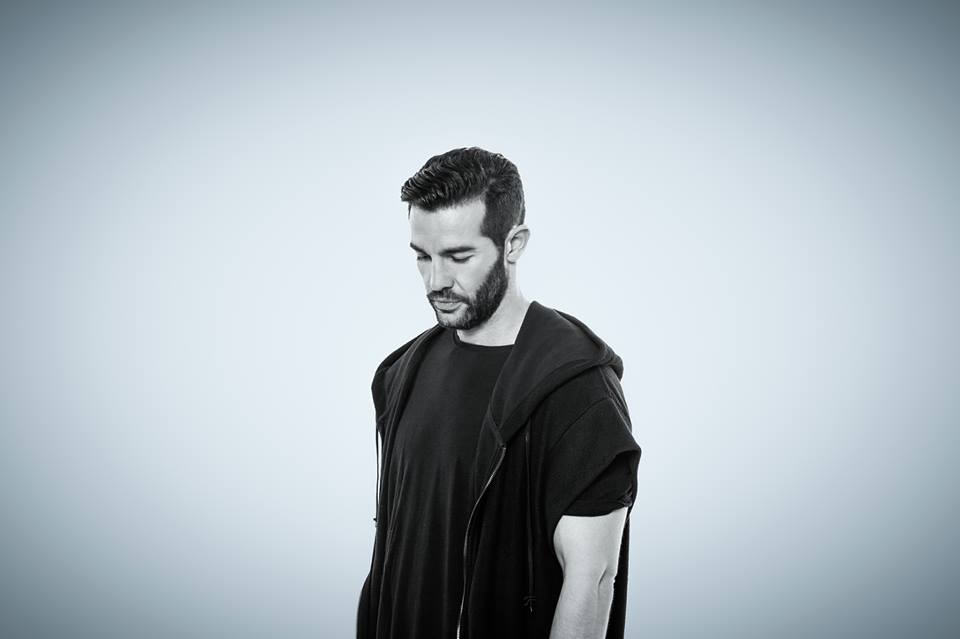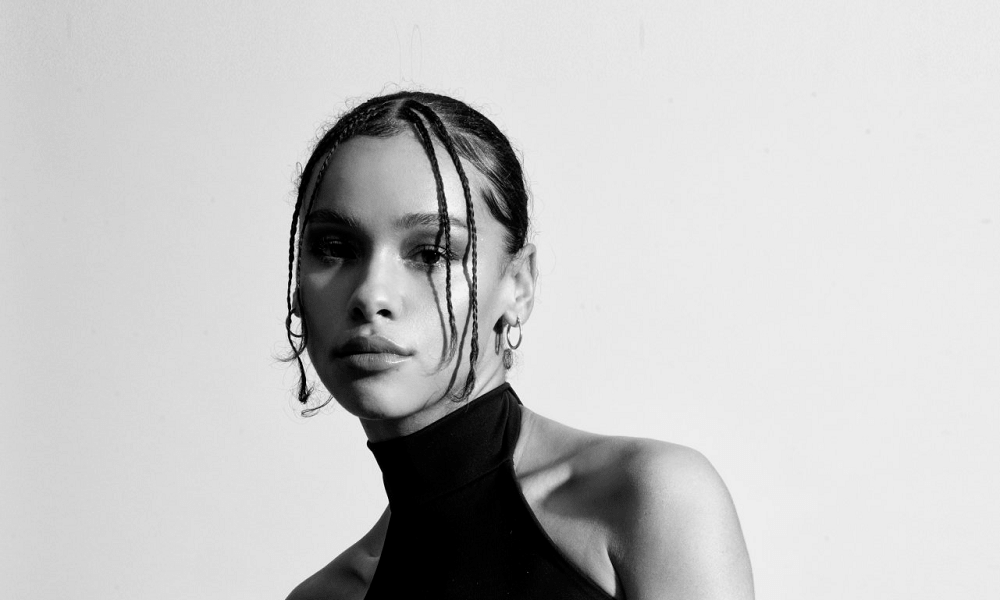When Gabriel Gutiérrez agreed to receive us in his apartment/studio in Lisbon, I rushed to read past interviews with other media, listen to more of his music than ever and try to understand one of the most curious and unique minds of today’s electronic music scene. Or, as he likes to say, contemporary scene. Guti considers himself a contemporary musician. Asked if he would catalogue his music as dance or contemplative, he answers the same: “My music is contemporary because it has been created here and now.” That is why it shuns the classic structures of the industry. The profile of an artist who “produces two singles a year and spends six months touring and playing them” does not appeal to him at all. That’s why he claims that the scene is not made for him. Faced with such a complex guy, you hardly know what to ask or where to strike. It was Monday at noon. Guti takes us to a bar near his home in the Portuguese capital. Fortunately, after the first question, we engage, among bread and beer, in a conversation, a talk that looks little or nothing like an interview. Although, in fact, those are the best interviews.
How much the world has changed in the last four months!
I’ll say. I still feel strange. Like everyone else, I guess. This has had some very positive aspects, like having time for family or for studying, making music, reflecting, resting. But, on the other hand, it’s hard not to have a job and not to earn money. It’s also hard on the family level.
Can the scene take anything positive away from all this?
It’s going to be super positive on a creative level, but it’s also going to kill a lot of people on an economic level. I faced it with some savings and I have a wife who supports me, but those who lived on a daily basis only pay bills and have not been paid for four months. I’m afraid it’s going to be difficult for them to survive. I hope I’m wrong.
What about society as a whole?
Well, I think the crisis forces us to understand that there are many things that we thought were essential and that, now, we have seen that they are not. We can live with much less than we do. And we have to believe in science. The countries that did worst have authoritarian leaders who don’t believe in science. They mock the masks and think the virus will magically go away. We’re fighting a powerful but small enemy that we can’t see. And that, in the head of a self-centred leader, is hard to digest and understand. Let’s hope we come out of this as a more mature society that believes in science, data and health policy. And may we allocate more budget to improve education and hospitals. The mismanagement of some leaders is the ultimate proof that education is lacking. I hope we will come out stronger, although I have my serious doubts.
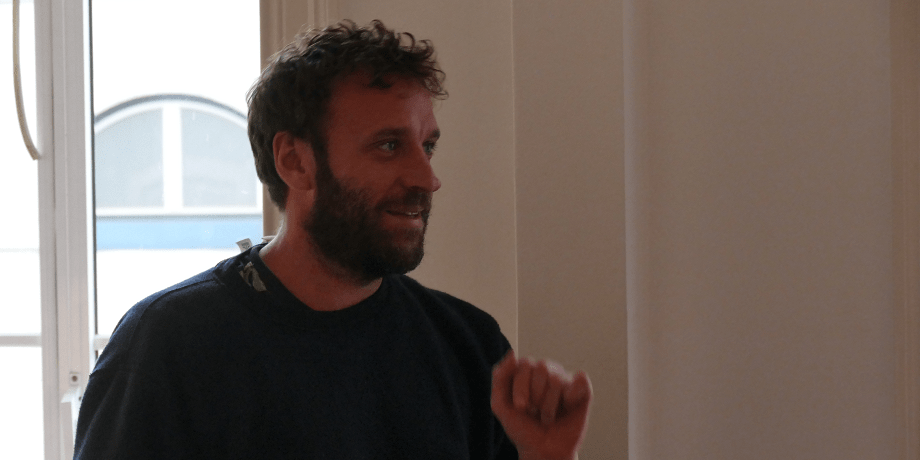
One day you said that “electronic music was the anti-music”.
I relate a lot to the concept of music. Recently, I worked on a jazz album that will be called Post-Music, a concept similar to “after music”, so, imagine. At that time, for me, electronica was indeed the anti-music. I came from a world where you played with instruments and I didn’t understand how electronic artists could create music without instruments. That’s how I saw it then, and obviously I don’t see it the same way now.
In case our readers don’t know it, we must explain that, at that time, you were dedicated to rock and were a member of the band Jóvenes Pordioseros, very famous in Argentina.
Yes, although when I started with rock I was, in parallel, experimenting with other sounds. Suddenly, I found myself playing five chords with the same band for five years and I got frustrated. That had become my job, but I wasn’t passionate about it. I had promised myself that I wouldn’t do anything that didn’t have something to do with music, so it was a moment of life or death for me. I had left college and my family didn’t have much money. I had to bet on music, and I bet on electronica.
What did electronic music bring you that was different from the rest?
I got a lot of freedom. I could start playing bass or programming drums without dealing with the people in the band or the singer’s ego. That’s when I realized I didn’t need the band anymore. I became a free musician.
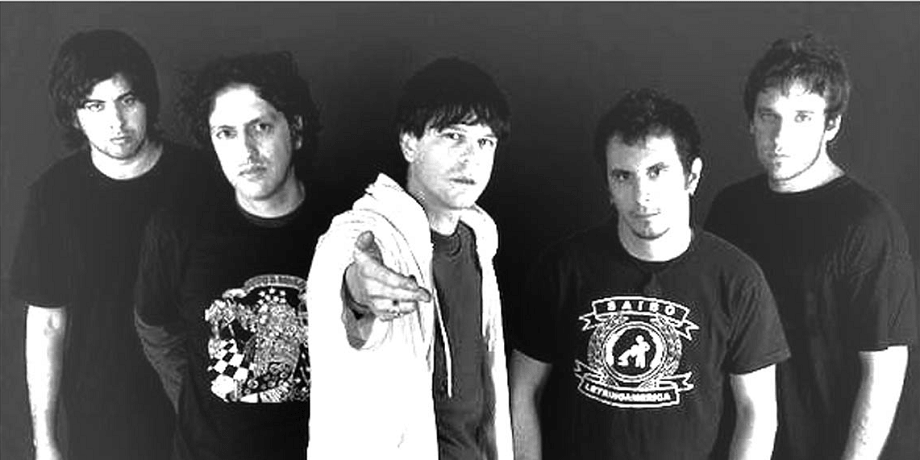
Did you frequent clubs before you switched to electronica?
Not at all. I’d been to a club five times at most. I switched to electronica when I was 27. I didn’t know anything about electronica. That also made me have less prejudice, less preconceived ideas.
You grew up surrounded by conductors, saxophonists, pianists… This music thing comes from your genes.
Yeah, all the Gutierrez’s are musicians. And my father was a poet until the system beat him and he had to stop dreaming to surrender to the system and the bourgeoisie. Anyway, I don’t think I’m a musician because of them; they’re school musicians, they studied it from a young age. My approach is different. I am ashamed to teach them my music; they are classical musicians.
They must have influenced you in some way…
The most important thing is that they showed me that one can live from music and that we don’t all have to end up being businessmen or lawyers. That was the biggest lesson they gave me.
Other influences that weren’t at home?
I had a lot of them. One that I remember with great affection is that of the Uruguayan painter Omero Capozzoli, father of a good friend of my mother’s. He was the first free artist I met. I was able to visit his studio when I was just 11 years old, when I was starting to experiment with painting too.
You talk about painting… Since you were a child, were you clear about going for music or did you have certain doubts at some point?
At first, I wanted to play football. I was also a national judo champion in Argentina four times. But then I saw that I wanted to develop my mind more than my body. At first, I thought that the only way to be a professional musician was to study music at a conservatory. And I was already late for that. However, I became a musician by listening to jazz and playing with people in an improvised way. I am a free musician. And the funny thing is that it was after going through electronica that I became a much better jazz musician, for example. Now I am a much more complete musician than before thanks to the freedom that electronic music gives me.
But you did go through the conservatory.
Yes, because I started studying Contemporary Music a couple of years there, but my band, Jóvenes Pordioseros, grew a lot and I had to quit so I could go on tour.
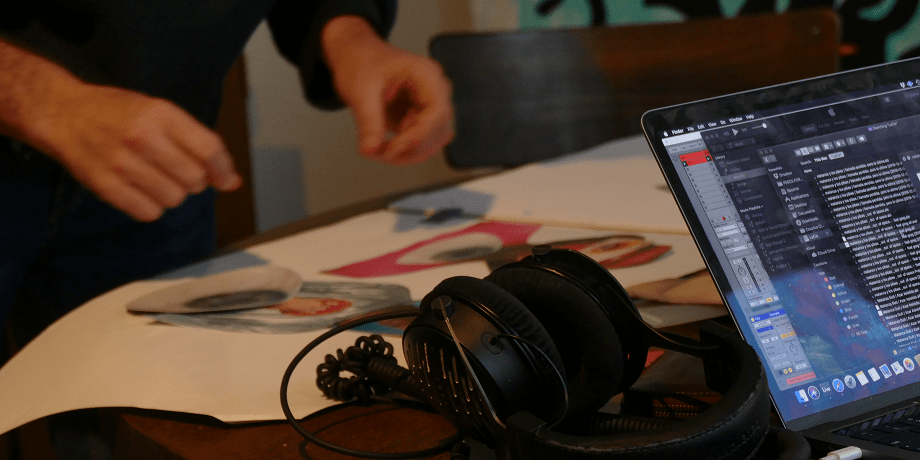
How was the rock scene in Argentina at that time?
That was crazy. The Argentine crisis of 2001 led to the emergence of many street groups and music bands that sang songs about drugs and destruction. People didn’t want to hear love songs, but sad and angry lyrics. I think that the emergence of rock music meant the right artistic movement in the right place at the right time.
Is that when you saw that you could live from music?
No, I’d say that was when I first got paid. And, above all, when we started filling stadiums with Jóvenes Pordioseros. That’s for sure.
Was it hard to go from a band environment to a solo touring as an electronic music artist?
It’s like when single people want to be married and married people want to be single. When you’re always travelling with a band, you need time alone. When you’re alone, you miss the companionship. That’s why, since I’ve been an electronic musician, I’ve always liked to collaborate with other artists and feed off their knowledge and techniques. I’m always looking to learn from others. I know that one day, I will end up being part of bands or producing for them.
Perhaps some of our readers will be surprised to read this. The scene only knows the Guti that makes house music.
Nowadays I do a lot of solo house music because I spend a lot of time alone, but I love to get involved in ambient, jazz, techno projects…
Isn’t it a shame that people don’t know it?
Why? Is it important for people to know?
Depends on where you want to go with it, doesn’t it?
What happens is that I don’t need -nor want- to be always thinking about making myself known, selling, and doing great things. I am experimenting, and also investing time in painting. I want to combine music and art more and more.
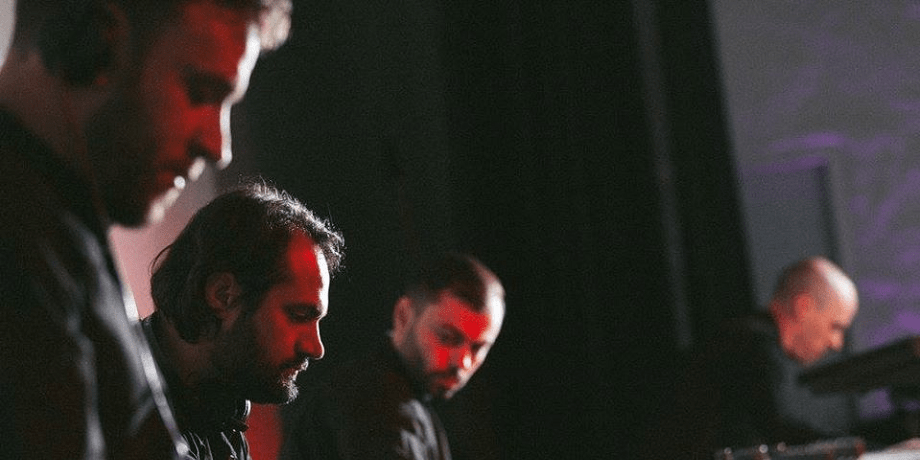
I was going to ask you about the sound of Guti, but I imagine you have a thousand answers for that.
My sound is always the last three weeks of my life. My partner always asks me why I don’t play my best tracks. I always answer that I come from a band whose concerts people only reacted when we played the hit. That’s very sad and I don’t want the same thing to happen to Guti. That’s why defining my sound is impossible. My sound is always my last three weeks of experimentation.
So, besides the Guti house artist, what else are you up to right now?
I’m doing a little bit of everything. Right now, I’m working with an American trumpet player and an Armenian pianist. This is a jazz music project with a band format that is born under the name Desmadre. For this, we’ve also created a new label called Modal Tune. In parallel, I am working on another of my labels, Personality Disorder, a project I started last year with my friend David Gtronic. We conceived it as a way to release all the music that wasn’t going to be released on other labels. It was born when I spent more time in Berlin with my wife and children (David also lives there). We combine music with art and my collages. We’re happy with how it’s going. I’ve also collaborated with the Chilean band Matanza in recent times. And I fantasize about a lot of possibilities. I’m doing a lot of things, but I’m realizing more and more that the scene is not made for someone like me.
What do you mean?
Let’s say I produce a track. In the best case, after about two or three months I send it to a label, and it is published after three more months. When the song comes out, it’s already half a year old. And the Guti of that moment is no longer the same Guti who created the track. I’m not like that, I can’t work like that. That’s why I say I make contemporary music: because I create it now, today. With my own label on Bandcamp and other similar platforms, I am able to publish what I have created that same day. The tempos of the scene are designed for artists who make two singles a year and spend six months playing it. I’m more visceral. Mine is another kind of stuff.
If I’m not wrong, you lived in Berlin and Düsseldorf.
I lived in Berlin, Düsseldorf, Barcelona, Bucharest (a crazy time in my life) and now I live in Lisbon, although I have my family in Berlin. And I grew up in Buenos Aires, of course.
Which would you say was more important in your career?
Buenos Aires. There I lived through everything: I was a confused teenager, a famous rock star, a starred rock star, I suffered from hunger, I had problems with drugs, I suffered from lovesickness, I have my family… I lived there for my first 27 years, the most important ones.
In Berlin, you lived with Seth Troxler and Ryan Crosson, if I’m not mistaken. That must have been fun…
And with Shaun Reeves. Actually, it was his house. They let me sleep on the couch because they liked me. That house was crazy. Ryan Crosson had already published something in Minus, but none of us four was anybody yet. It was 2007. We were kids, four artists from different places who came to Berlin with hardly anything. It was all very creative.
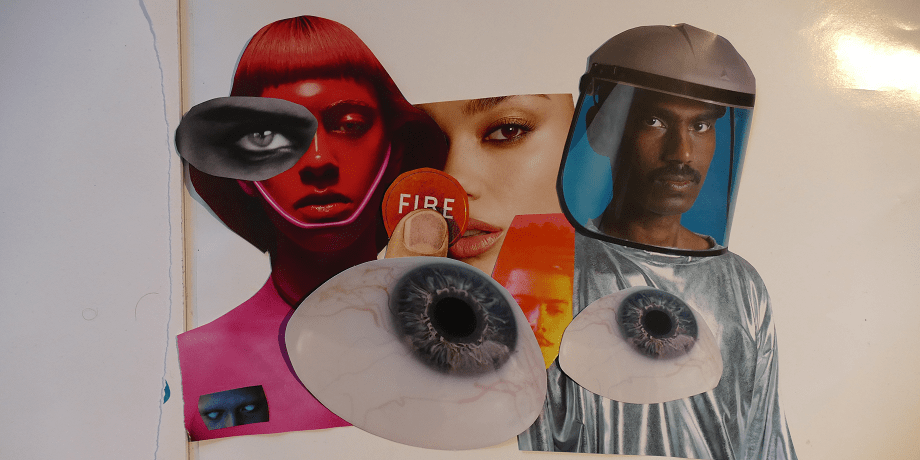
In a way, you are also linked to Barcelona since you have your studio there. Why in Barcelona and not elsewhere?
The chronology of things sometimes surprises you. I was moving to Lisbon at the time, but my project with Francesco Tristano, who lives in Barcelona, led us to build our studio there. Then Daniela, my partner, appeared and I went to live in Berlin with her. My project with Francesco ended, but I already foresee new adventures that will soon take me to Barcelona, so I will keep my studio there.
You have also been a regular on the Ibiza scene. The island is now on everyone’s lips because of its hard turn towards new mainstream trends. What is your diagnosis of the island?
Ibiza has become a place of wealth and excessive luxury. Generally, these people are not associated with avant-garde or underground art, so we are left without an audience. The parties are paid for by people who don’t understand music and that’s what killed the island. It’s like putting an art museum in a nursery school.
You have performed in all kinds of situations and moments and before all kinds of audiences. What is the environment in which you feel most comfortable?
Lately, I feel more comfortable open-air, by day, with an audience that is fresh and eager to have fun.
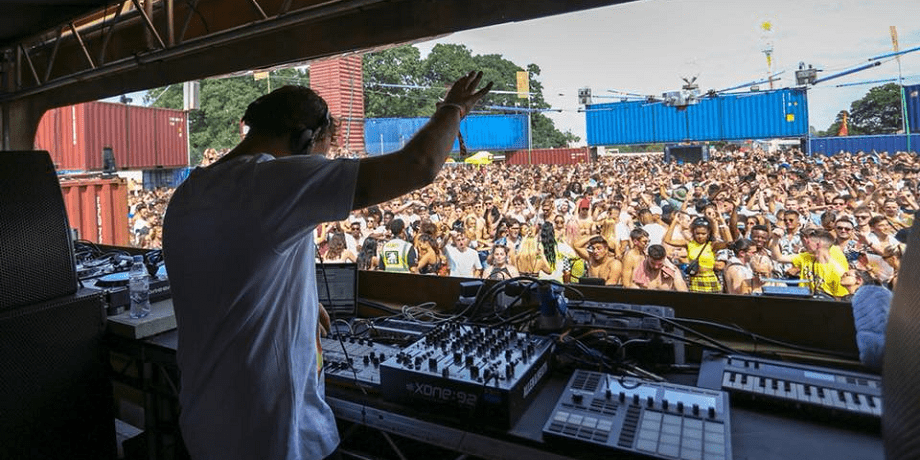
What does Guti see when he looks back? What days or moments do you remember as decisive in your career?
I see four clear moments. The first one is when I started my first band and when my friend Dani told me that he was going to play with them, and I went to the first rehearsal with a horrible keyboard and a low-priced synthesizer. The second is my first stadium concert with Jóvenes Pordioseros. The third: when I moved to Europe and everyone started playing my tracks, especially that summer in Ibiza. And the fourth is today, with my transformation into a visual artist and the beginning of all my art projects that go beyond music.
And when you look ahead, what do you see? What does Guti still have to bring to the electronic music scene? And specifically, to the club scene?
I hope I can still bring a lot to the music scene. Otherwise, I wouldn’t be a part of it anymore. My flirtation with other arts doesn’t mean I’m going to give up music. The day I no longer feel like doing something relevant or feeling expendable on the scene, I will stop participating in it.
How do you produce music in your studio? What do you use?
I use these little machines with dwarfs in them, and when I press buttons, songs come out. (laughs) I’ve been a musician for a couple of decades and collected many instruments throughout my career. I like to have everything connected and record every take. I like to invite musicians and I make a lot of music on the road, so I got used to making music with anything in anyone’s studio.
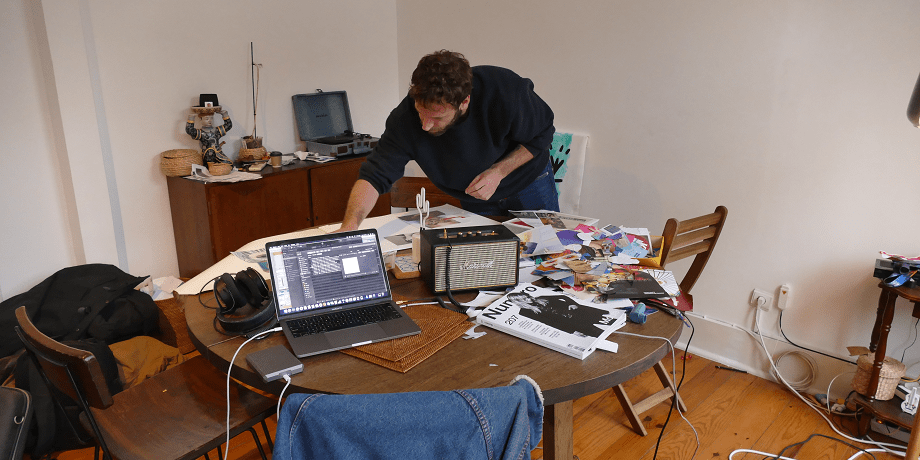
But what about in your own studio, how do you approach it?
I wake up in the morning, walk to the studio, turn on the machines, leave my mind blank and start looking sound by sound, without asking myself many questions, based only on whether or not I like what I hear. From there, I move on, without marrying anything. If I have to spend 10 hours, I do it. It’s quite a playful process.
Did you ever buy the Rhodes from Martin Buttrich?
(laughs) He never wanted to sell it to me! I keep dreaming that one day I’ll convince him to sell it to me. It’s one of my dreams. If it’s not the Rhodes, it’ll be another, although… yes, I especially like the Rhodes.
I imagine you believe in the messages behind the music. What’s yours?
I don’t think there’s a message behind or in front of the music. I rather believe in music as a message. You are what you do, what you live and that is the message: we are contemporary artists and I hope everyone takes it seriously because it is now your time and it is now when we are part of the scene. Maybe in 20 years, we won’t be anymore. Any day, an asteroid may fall and it’s all over, so let’s do everything with love and seriousness. That’s my message.
(Cover Image: © Eloi Herrero)



